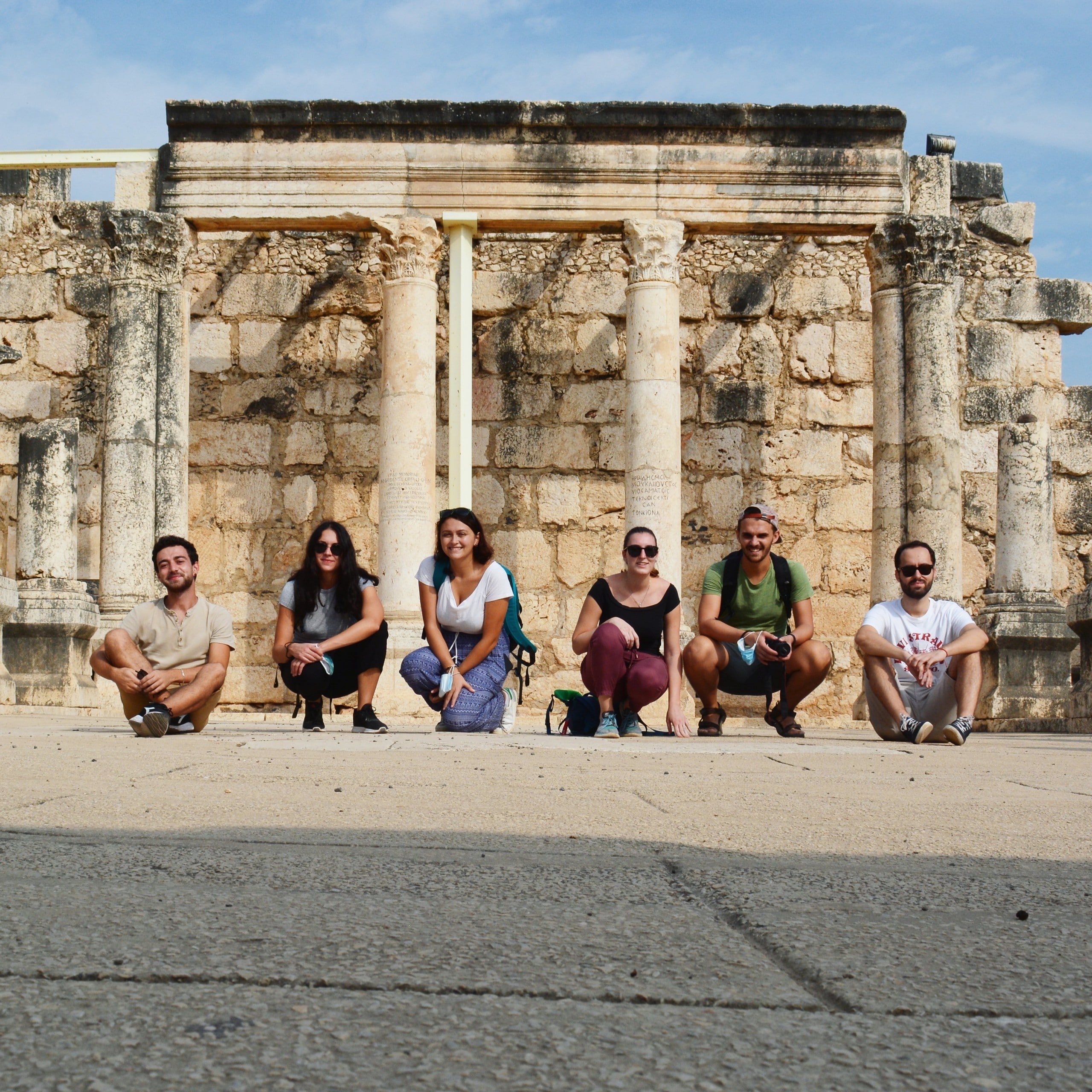
Galilee. Our journey to the empty sanctuaries
Pro Terra Sancta volunteers, taking advantage of the reopening after the end of the lockdown, went to Galilee for a three-day training course. Here is what they found out
Our journey started in Nazareth, accompanied by Vincenzo Bellomo, head of the Pro Terra Sancta office in Bethlehem. After a mandatory visit to the Basilica of the Annunciation, we decided to get lost in the streets of the old city of Nazareth, where we happened to come across a fashion academy founded by a Palestinian boy who, after studying fashion in Italy, decided to teach the job to other young Palestinians by opening a colourful atelier that seems to be part of a distant world.
Lake Tiberias and the Upper Galilee
In the evening we moved on to Lake Tiberias and reached the structure that hosted us: a residence of the Sisters of Tabga, next to the sanctuary of the Primacy of Peter, a place surrounded by nature. From there, the next day we reached Capernaum where, in our work clothes and on board a tractor, Fr. Luca Panza welcomed us. Fr. Luca is a nice friar from Bergamo who, after years spent in the service of the last ones, welcomed the call to play a slightly different role, that is, to guard a place, a sanctuary, taking care of an itinerant community composed mostly of pilgrims.
After filling our eyes with the beauty of the two natural parks of Ayuna Valley and Hula Valley, at sunset we visited Misgav Am, a kibbutz in Upper Galilee right on the border with South Lebanon. There we met the founder of the Educational Tourist Center, who, in a completely sui generis way, wanted to offer us his narrative, leaving us many questions.
A meeting that, on the contrary, gave us some answers and that will remain in our hearts was with Fr. Ricardo Bustos, on Mount Tabor, who, with his account of the artistic and historical beauty of the place, took us back in time.
Journey back from Galilee to Jerusalem
Before we set off again on our way to Jerusalem, a short but intense stop in Haifa, where we met Gabi Kalak and enjoyed a view of the city from Mount Carmel. Gabi is an Arab-Israeli guide who today, due to closures and the blockade of tourist flows, is unemployed. So he told us about his Haifa and how for him, native of Jerusalem, and for many others like him, it is a place where you can feel free and where you can start again.
The feeling that we all had in these three days was of deep gratitude. Because at the end of a second lockdown and almost at the end of our year of volunteering, which was very different from our initial expectations, visiting certain places and having the opportunity to even have a chat with those who live and care for them, made us feel privileged. These same places, usually crowded with pilgrims, which count over 6,000 entrances a day, today, due to the pandemic, are almost completely deserted.
On the one hand this is very sad and leaves a sense of nostalgia, especially for the many people for whom the Holy Land represents a dream and the journey of life and for those who have always seen these places alive thanks to the presence of pilgrims. On the other hand, however, as we have been told by the friars, this forced pause has given us the opportunity to rediscover the sense of our own service and to recharge our batteries for a future return to normality with the hope of being able to welcome the return of the pilgrims with even more strength and enthusiasm. Perhaps these days have had the same meaning for us too: a break from the worries and tiredness of a year not easy, but full of emotions and experiences to treasure.
It’s not easy to tell in words what happened in these three beautiful days. It has only been three days, where perhaps it would have been impossible to see all that these places offer, especially in a situation where many sites and sanctuaries are still closed to the public. But even more important and formative was not “visiting places”, but “meeting faces” and their stories, even those from which we feel further away. For us from today Capernaum will be the welcome and temperament of Fr. Luca, Tabor the smile and enthusiasm of Fr. Ricardo, Haifa the disarming kindness of Gabi and Tabgha the confidences and laughter with our fellow travellers.